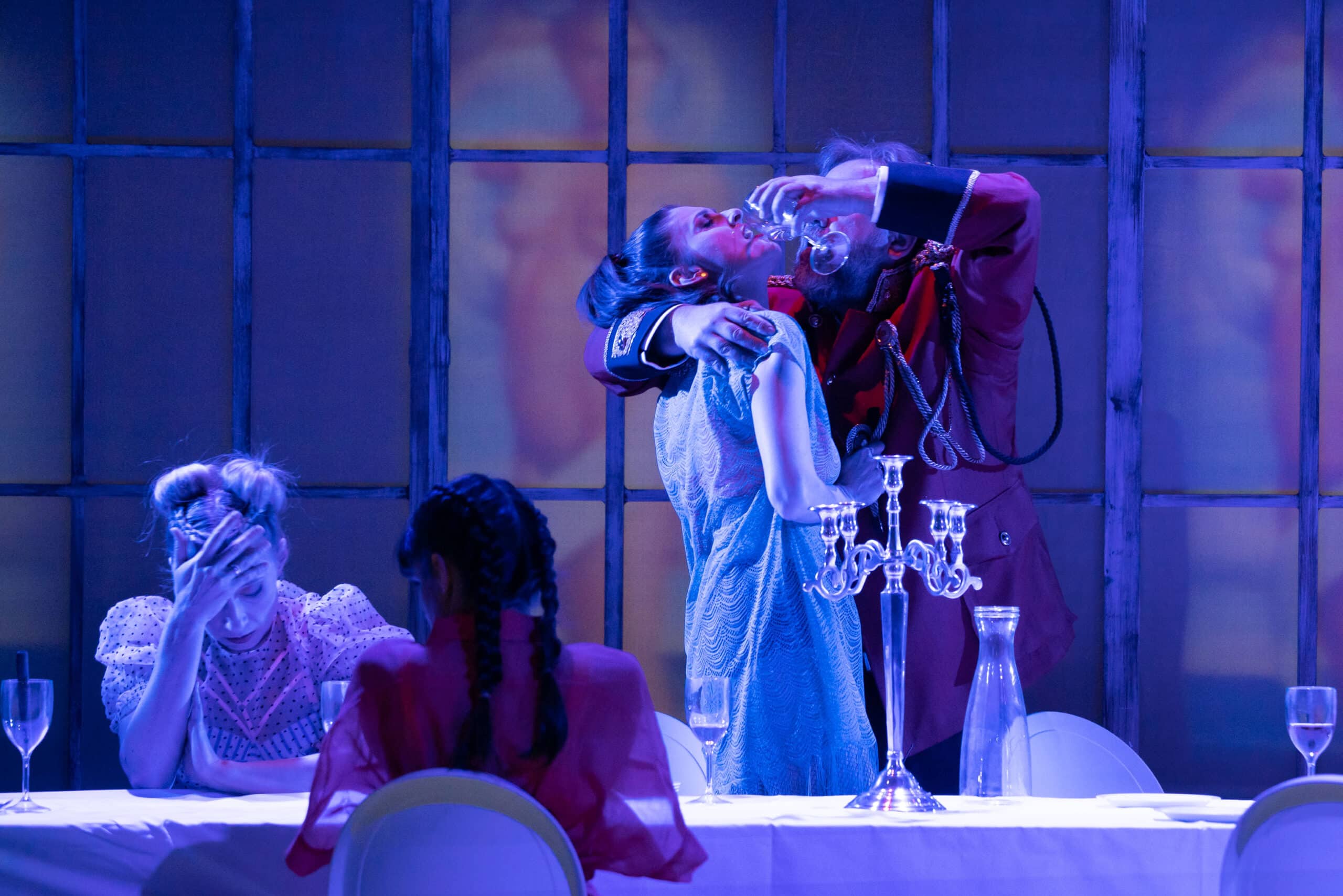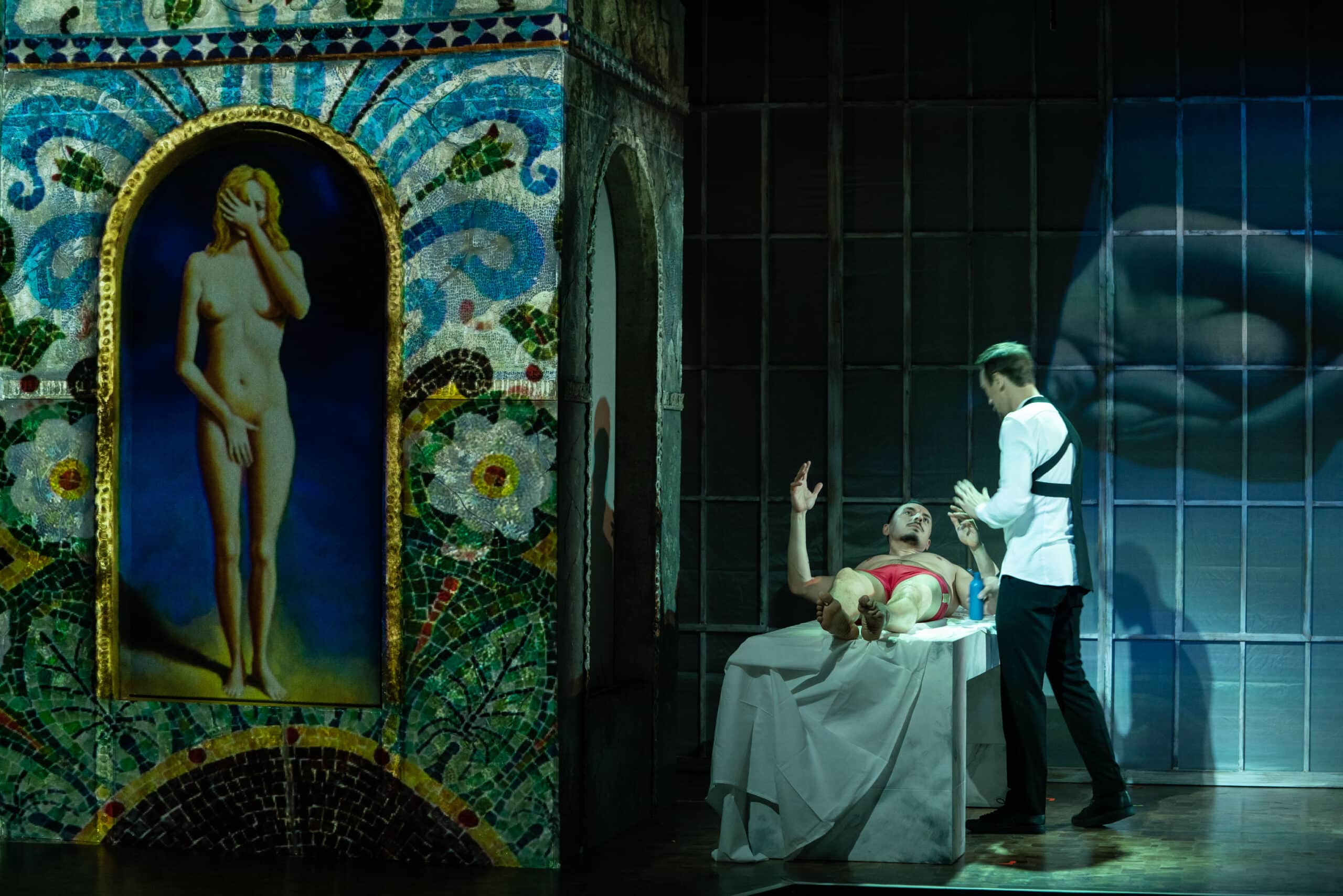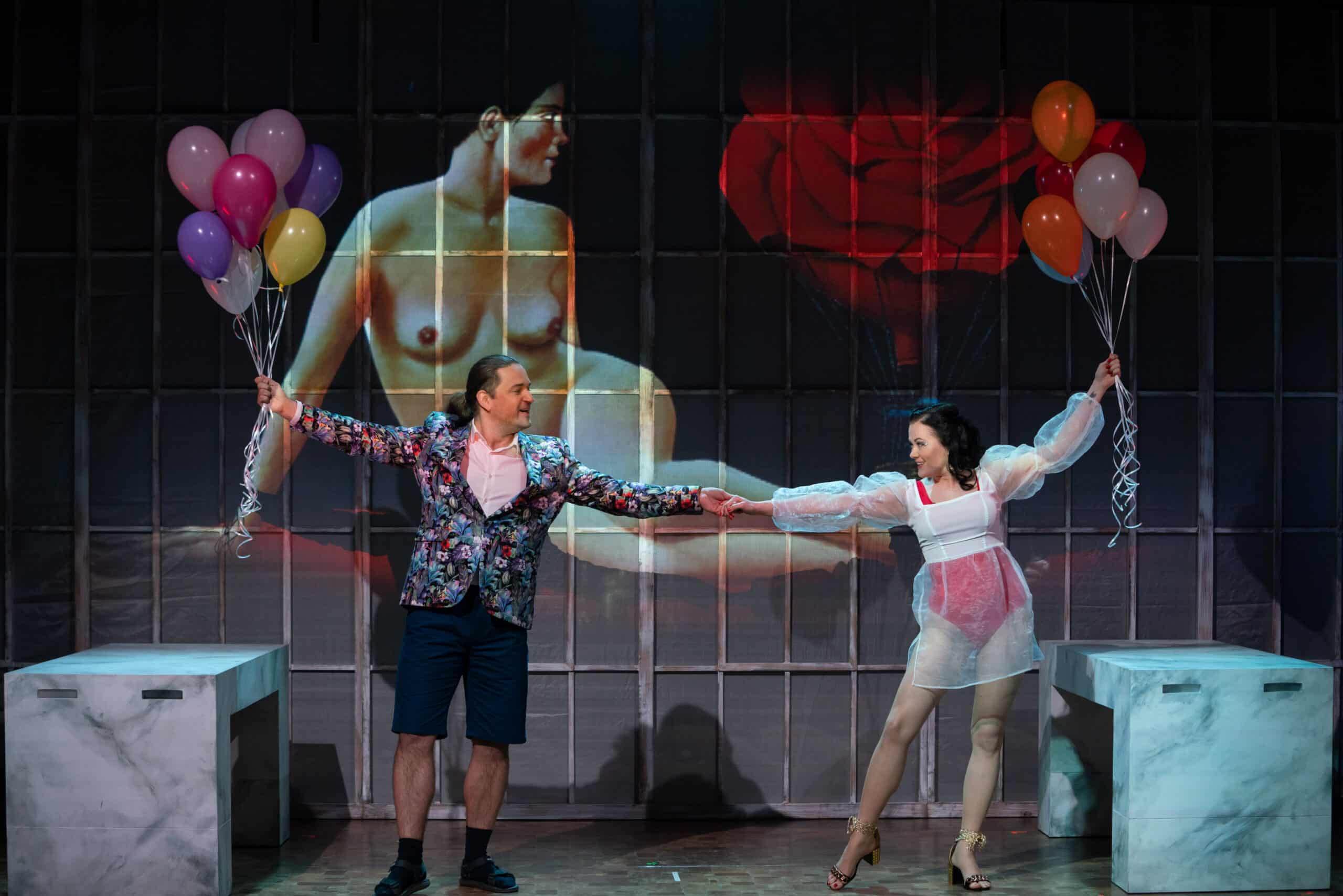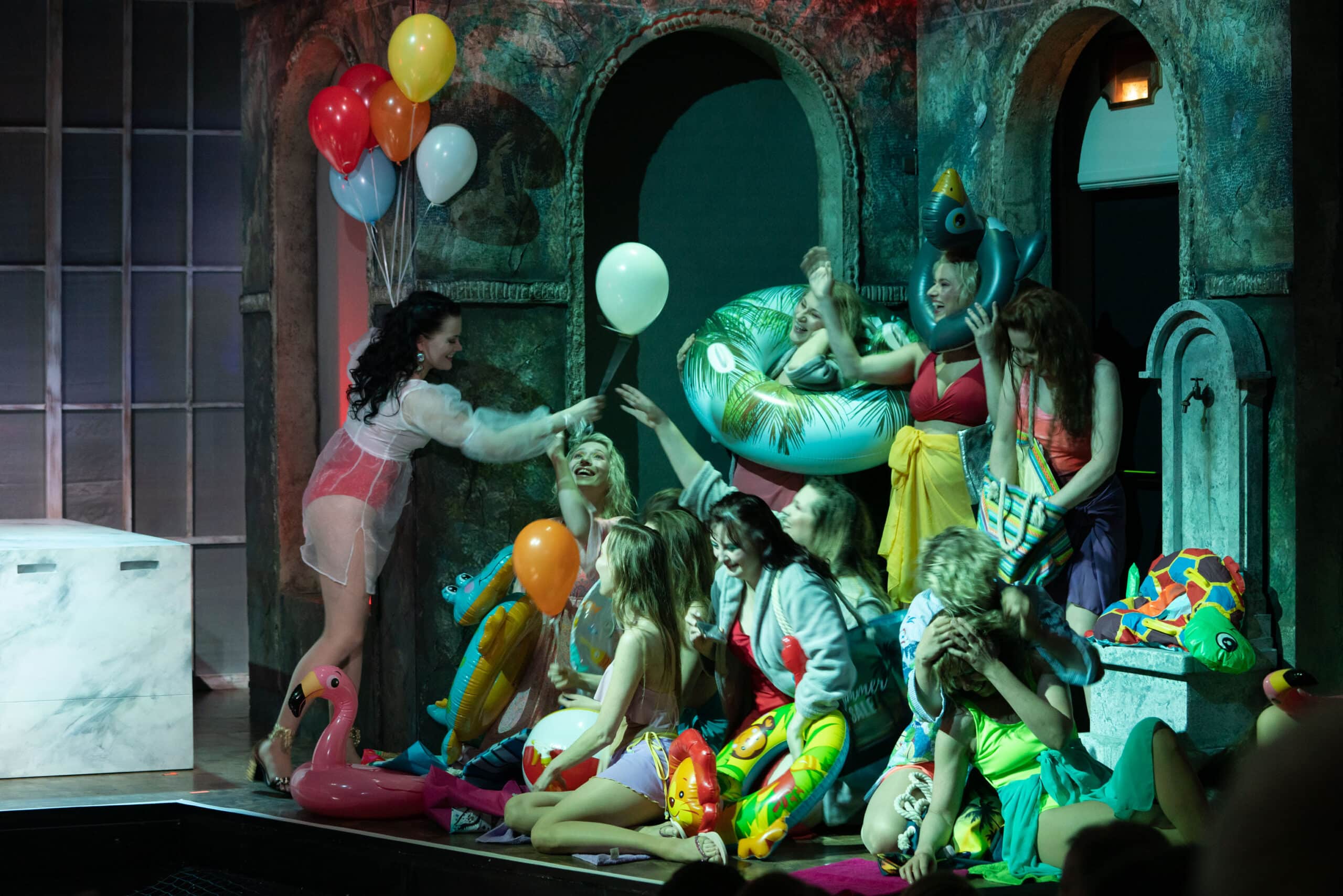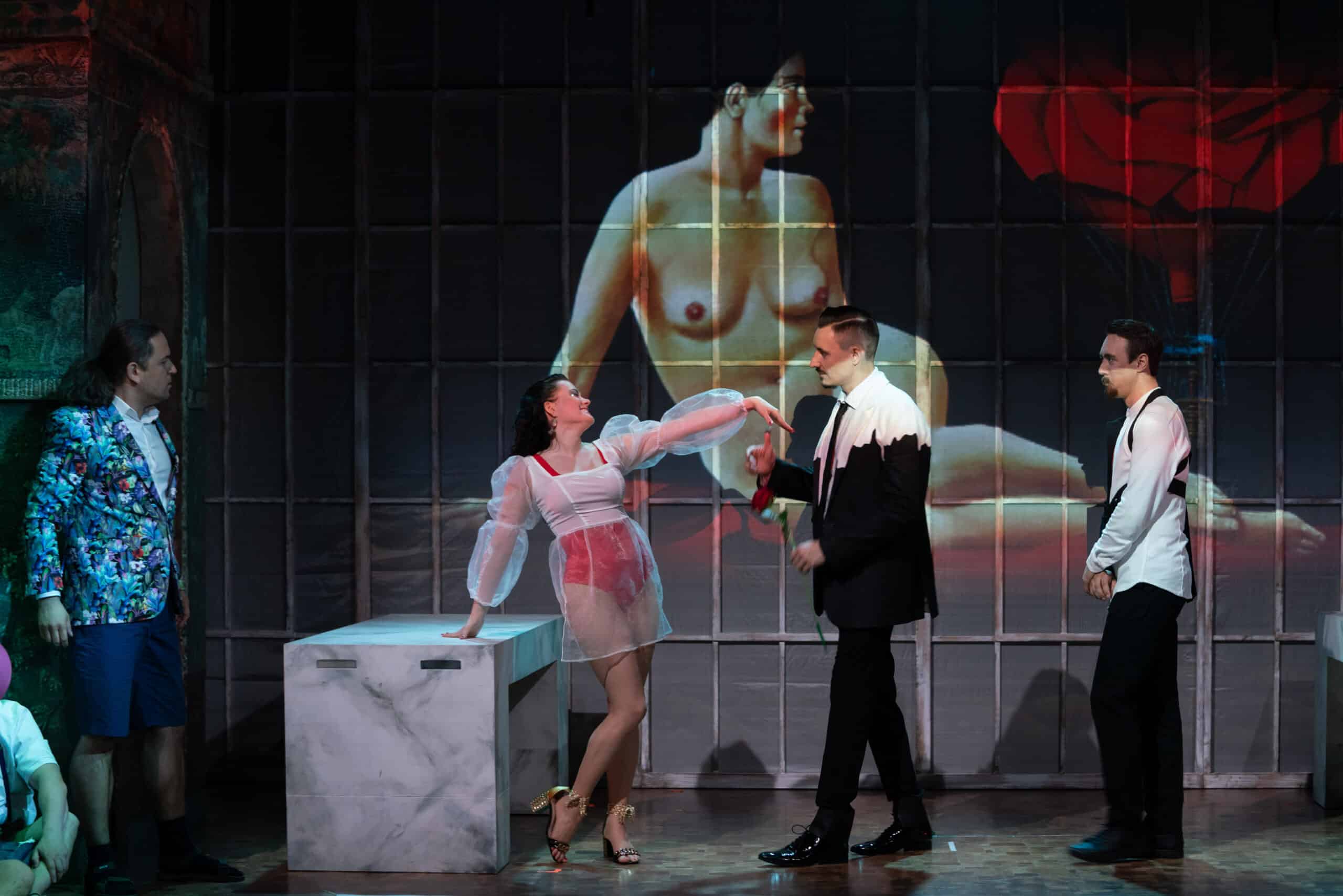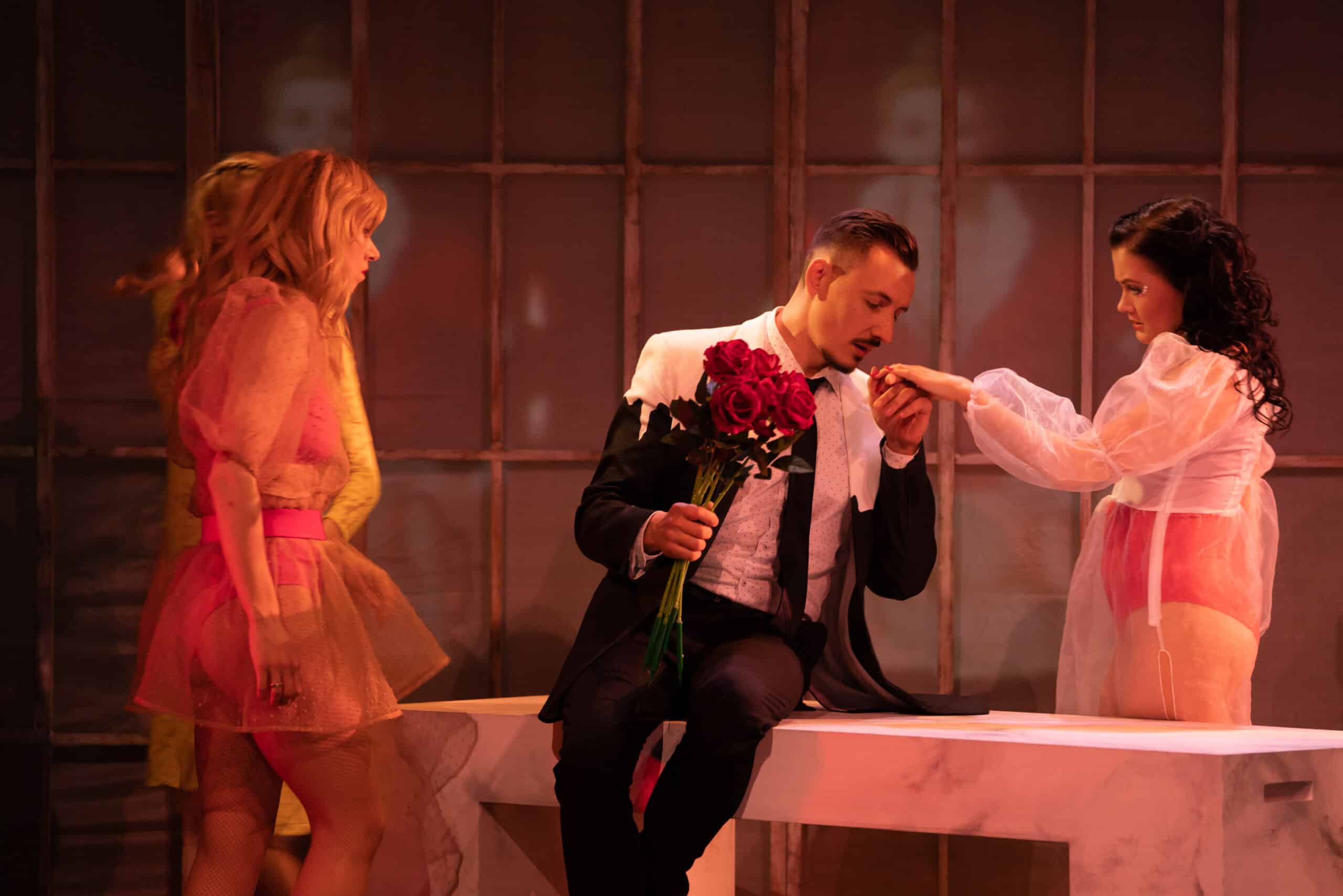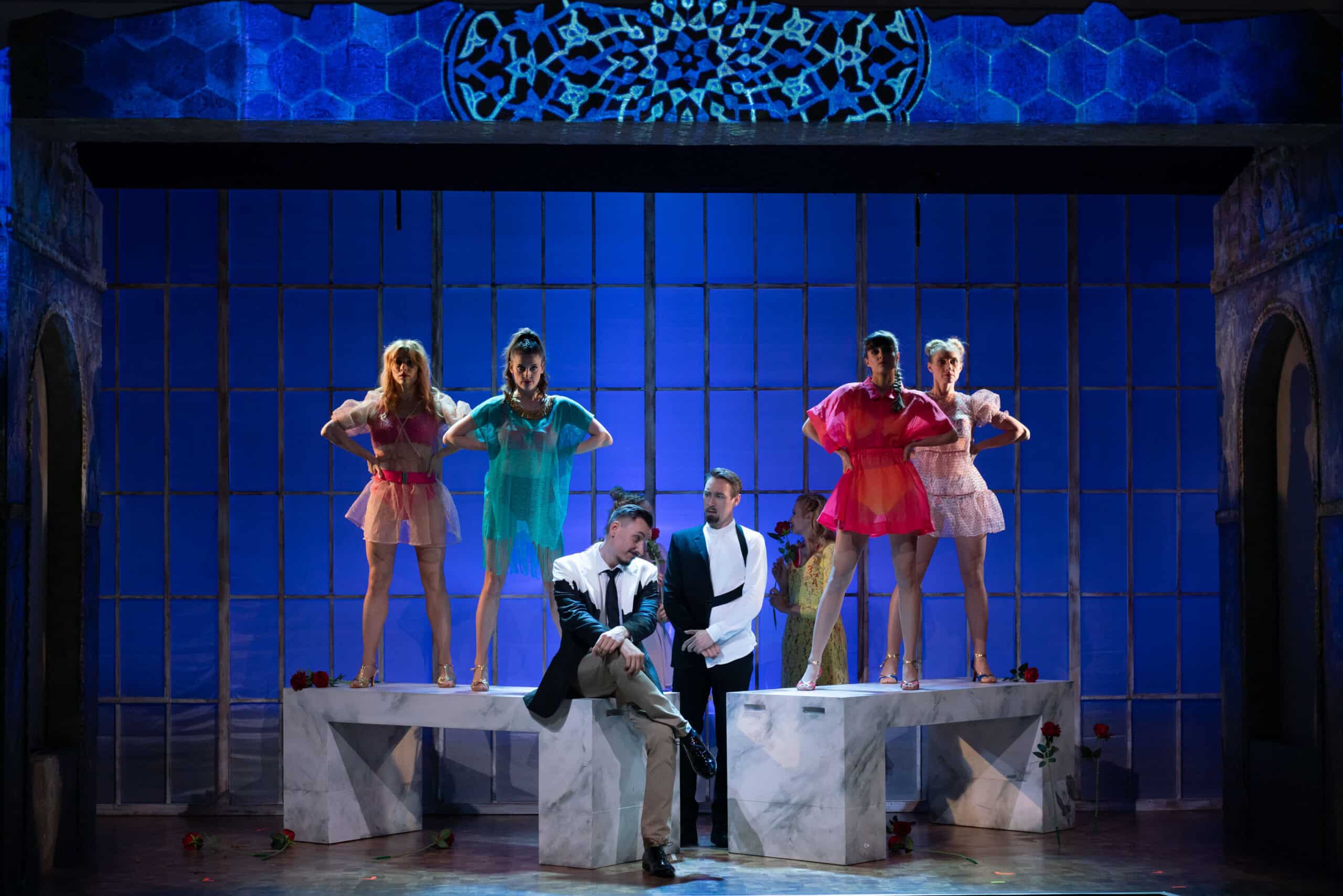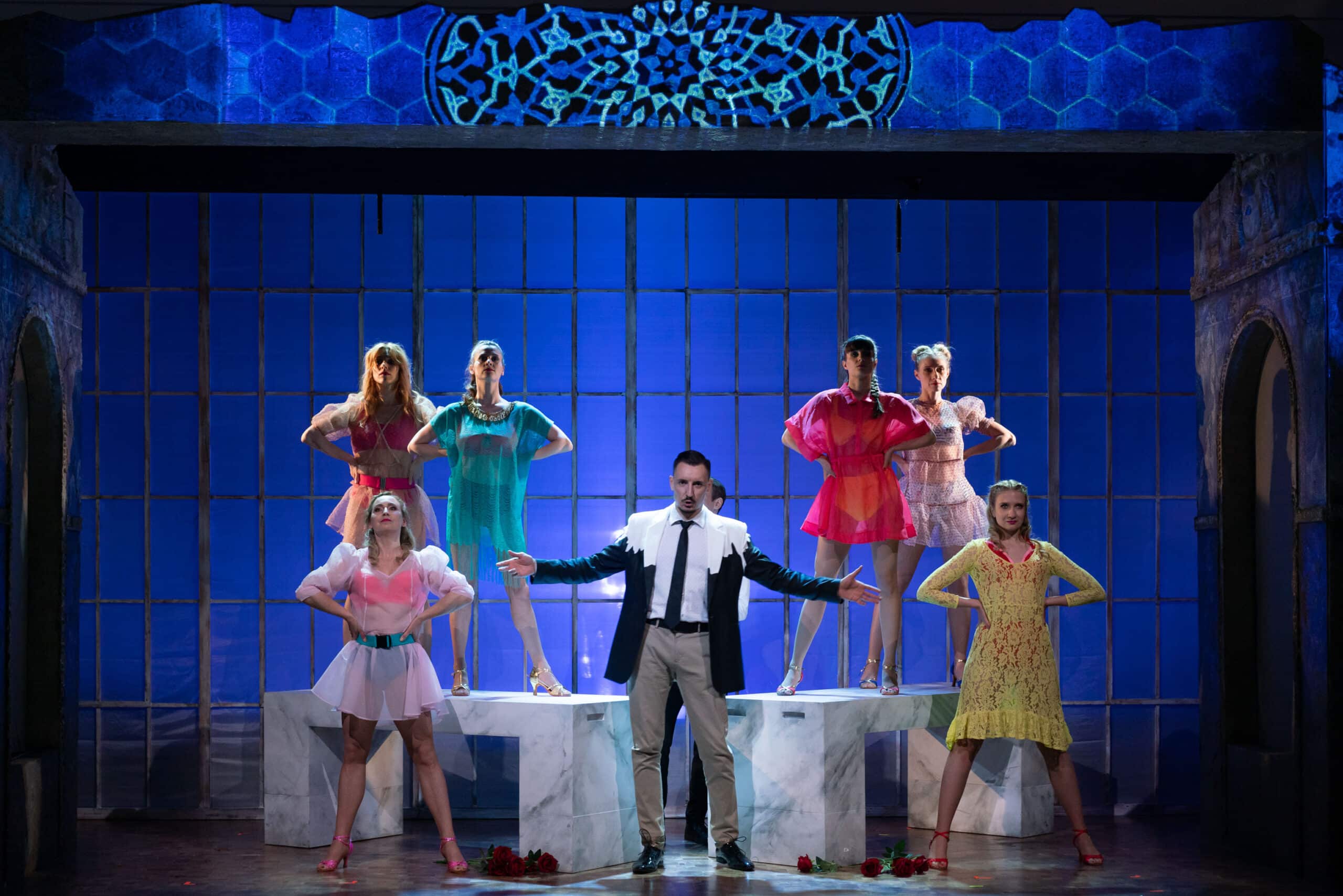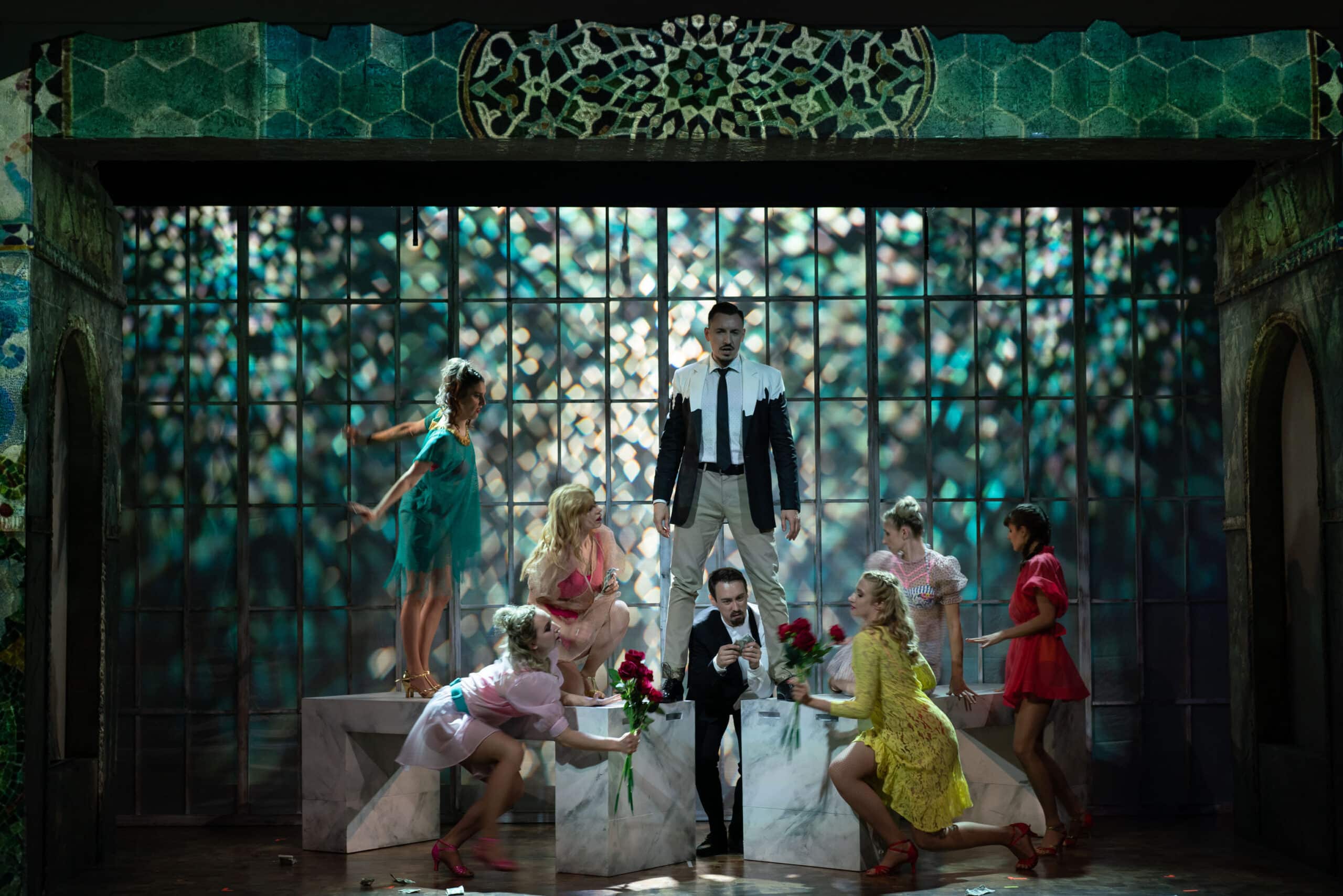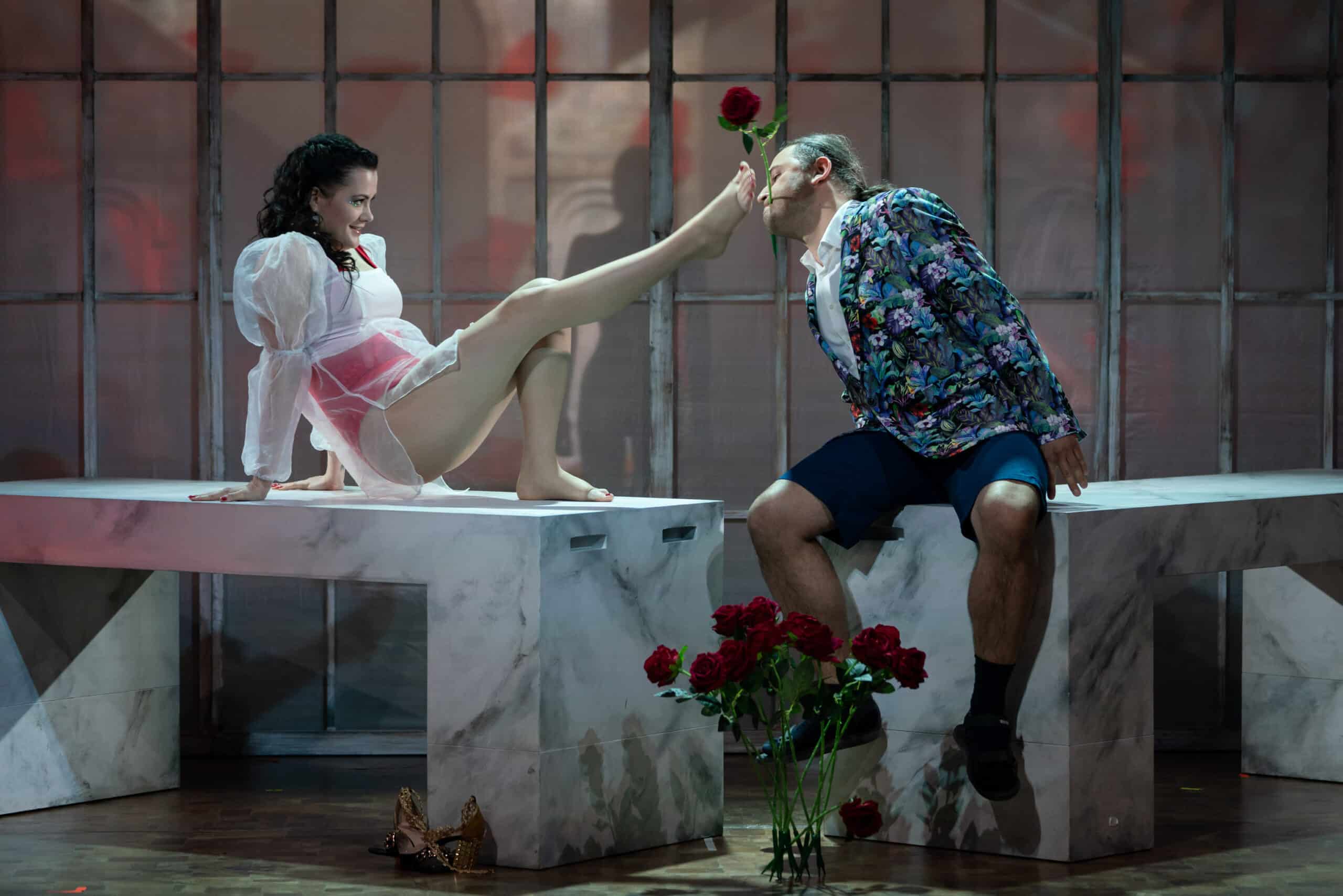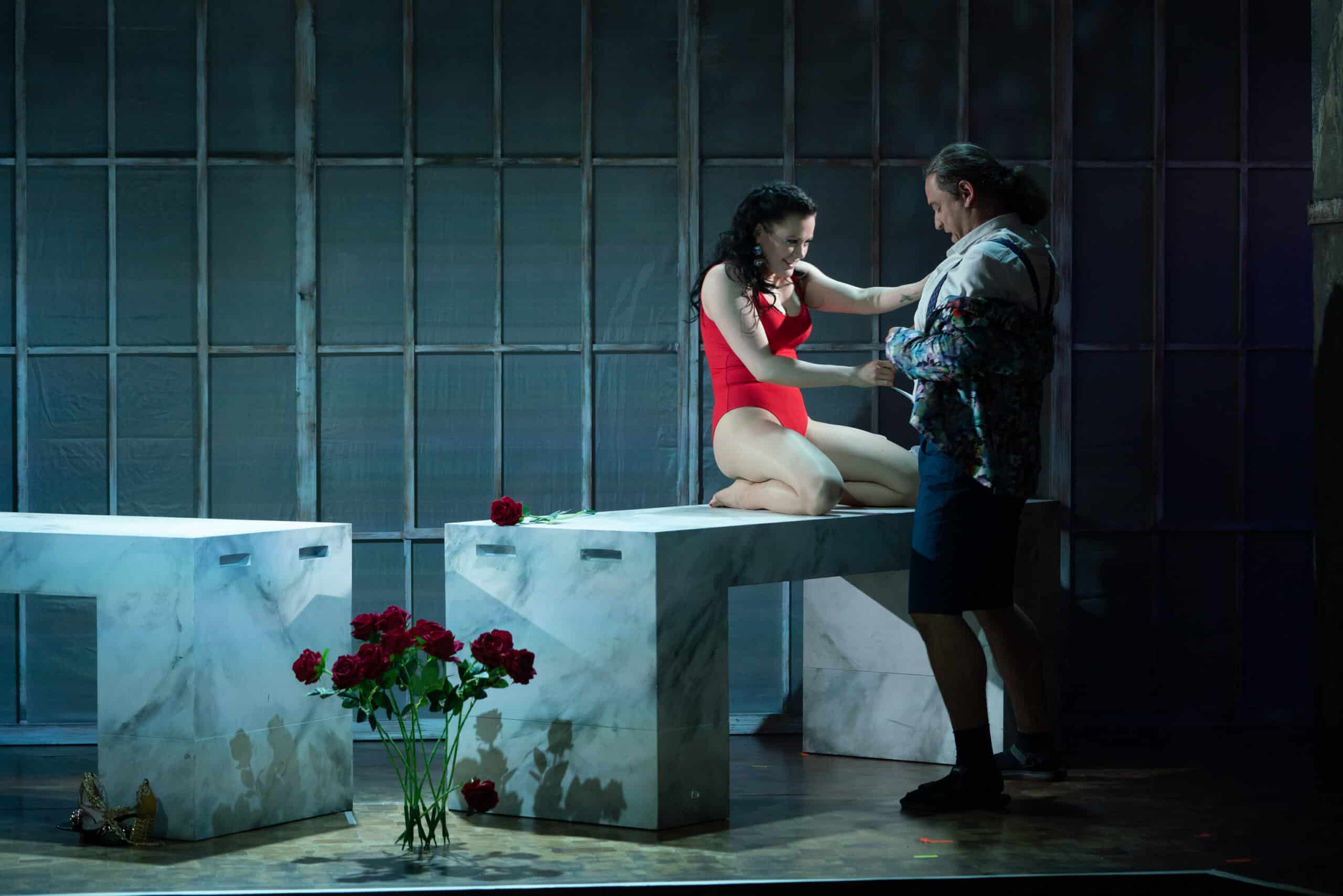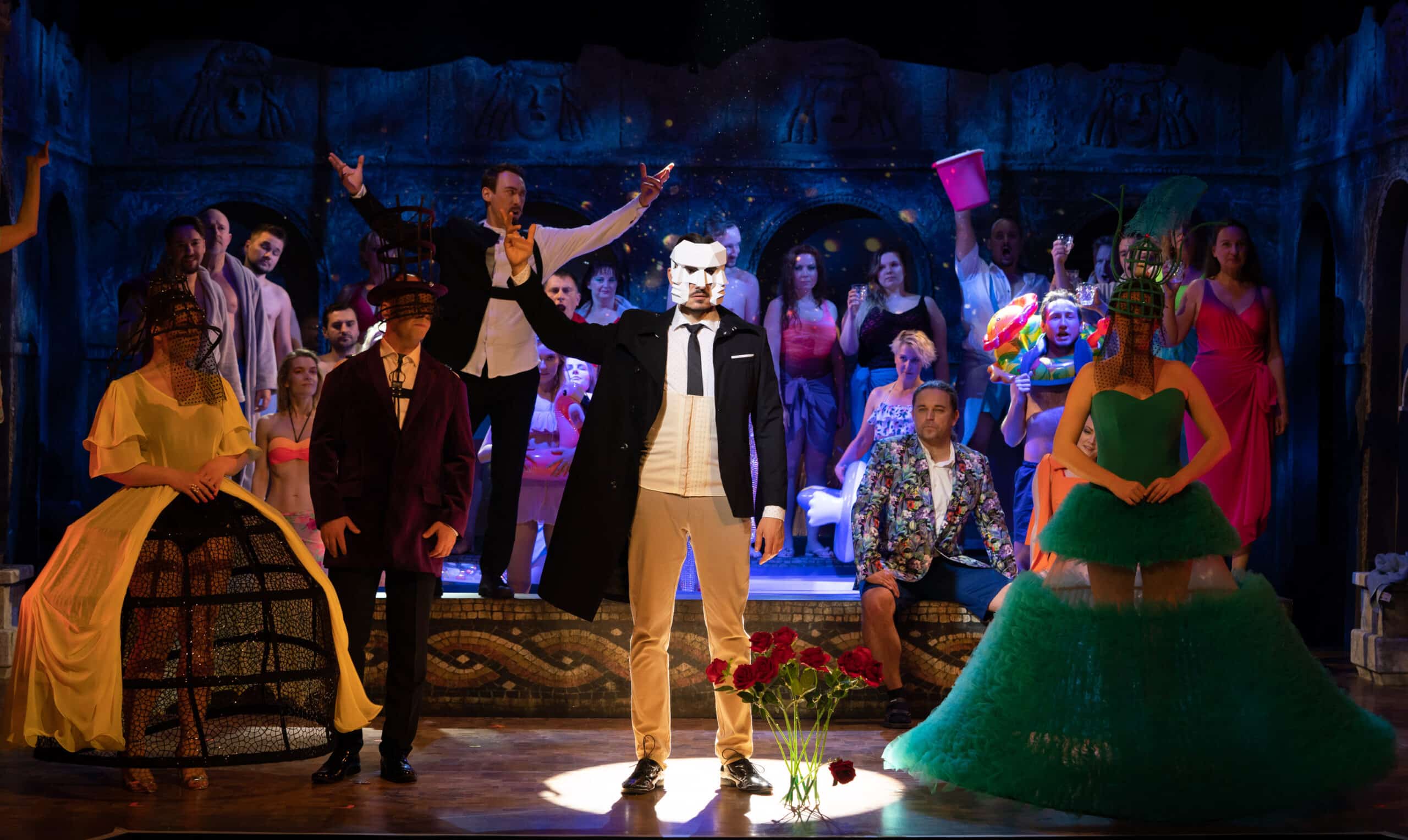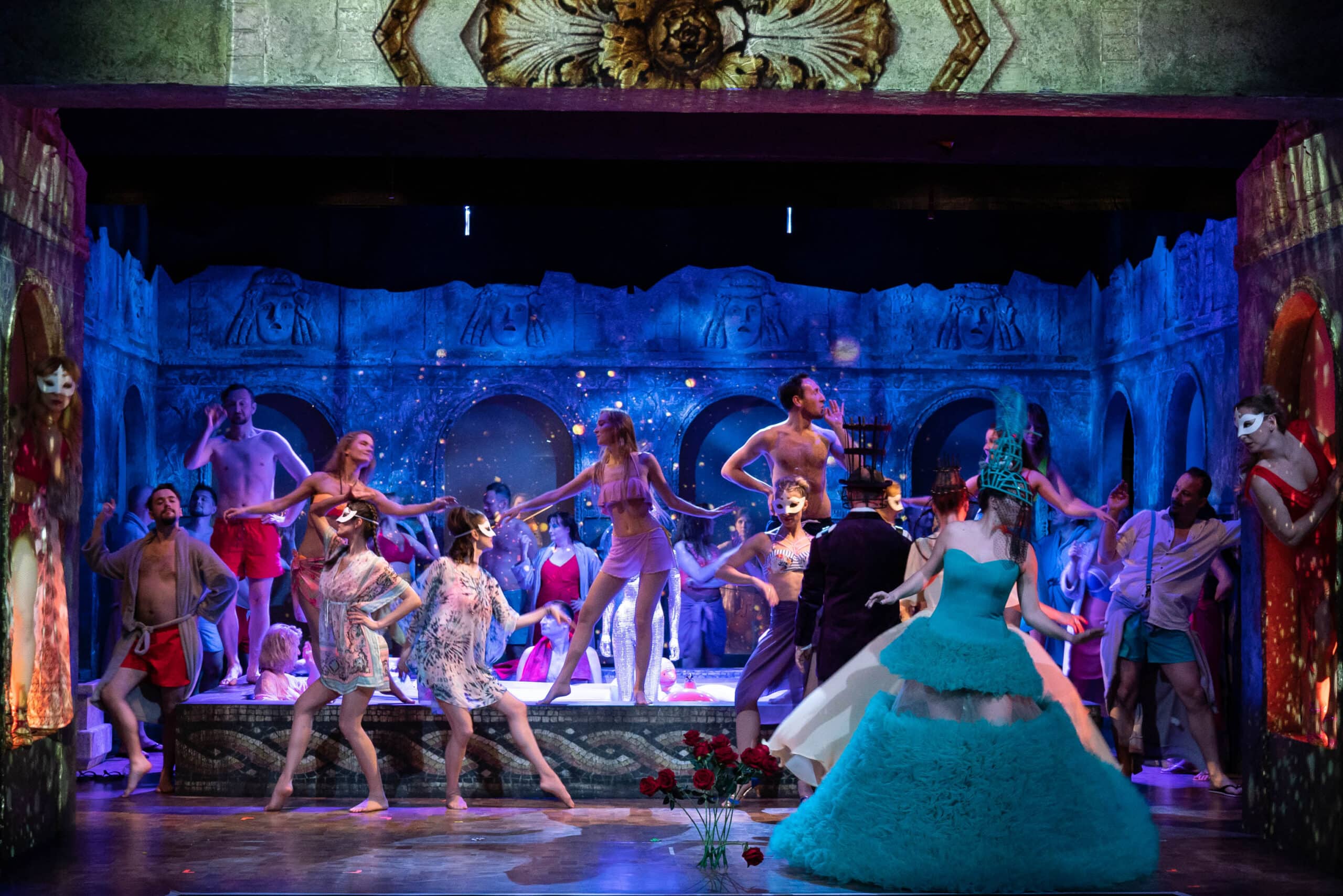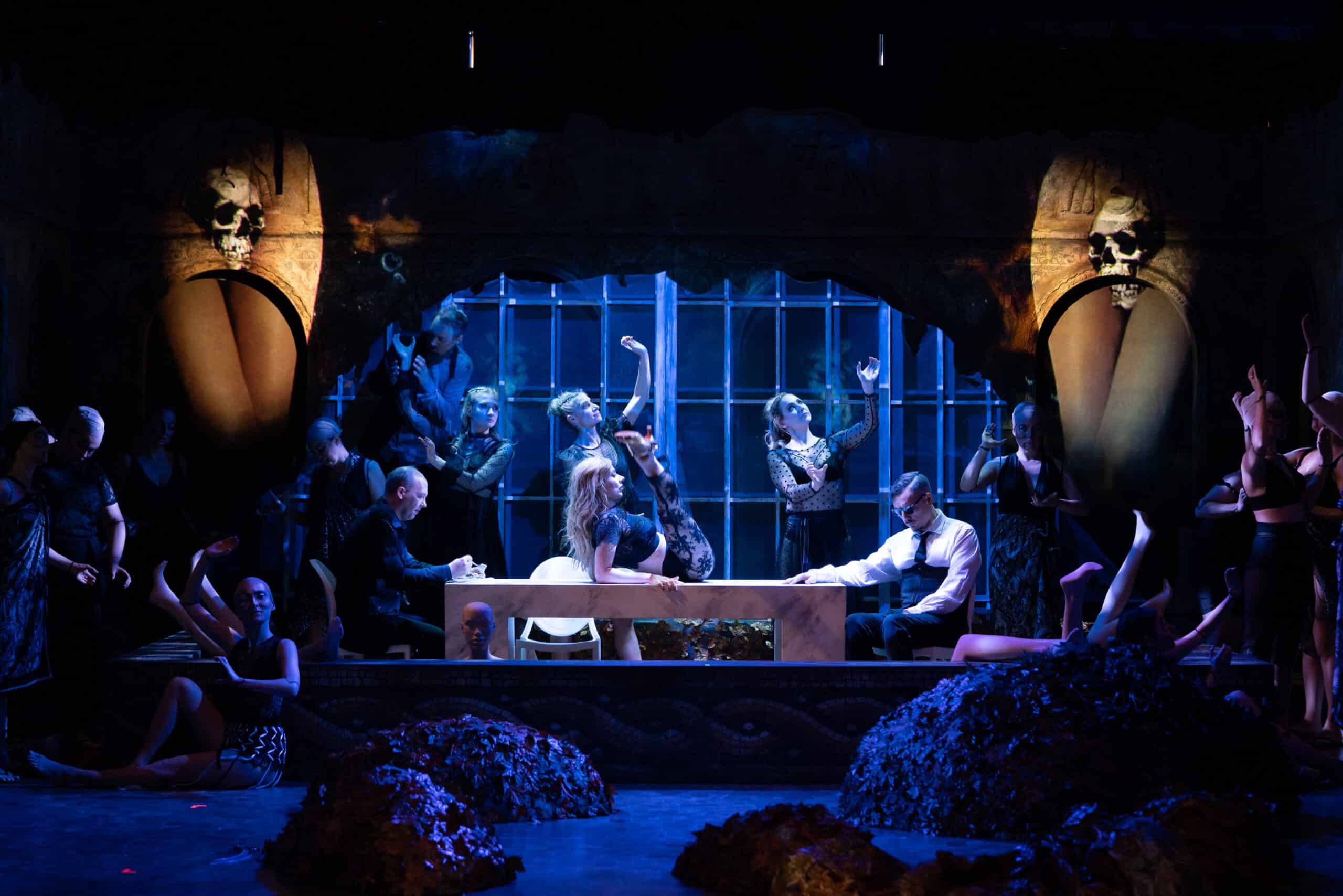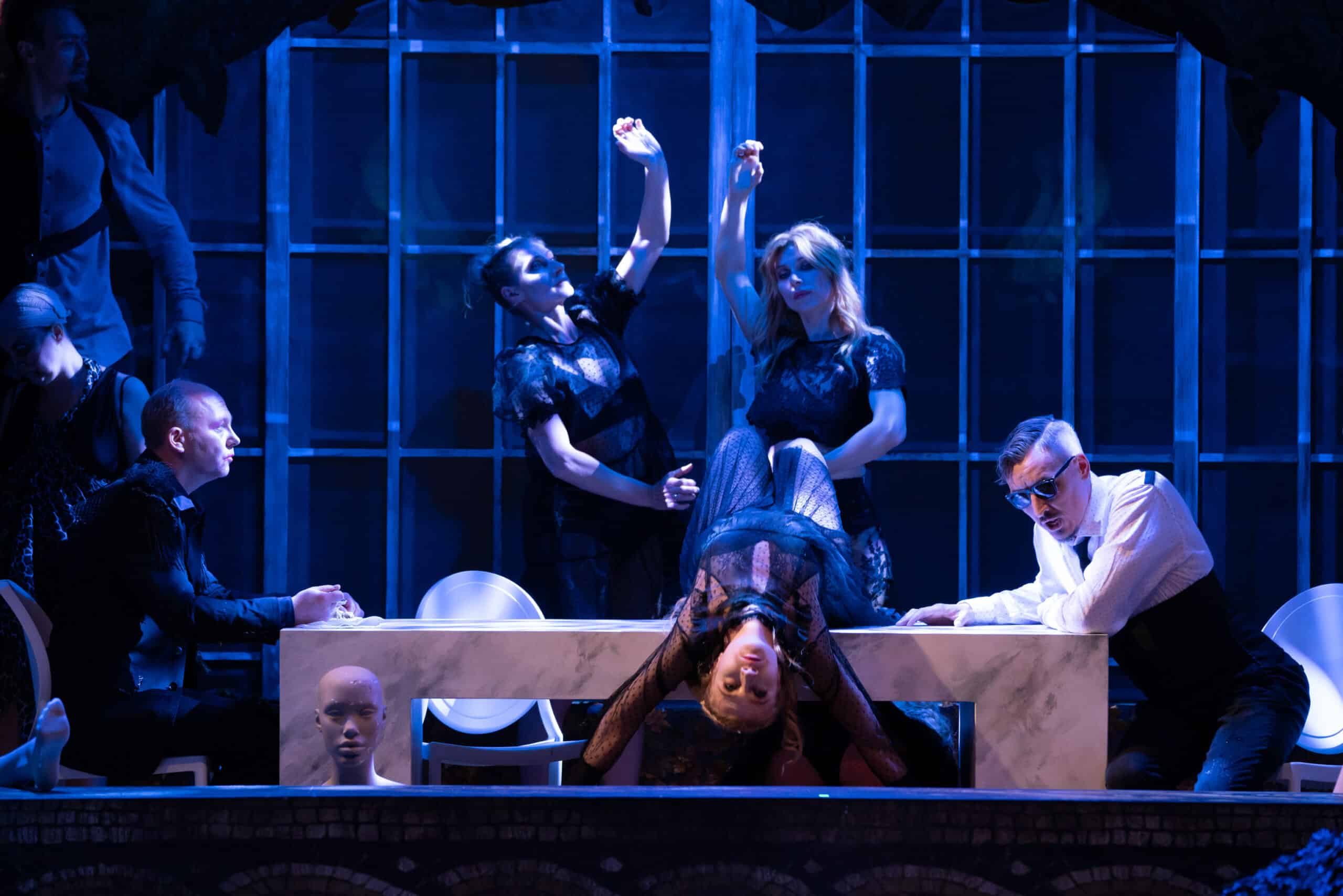Don Giovanni / W. A. Mozart
WOLFGANG AMADEUS MOZART
Il dissoluto punito, ossia Il Don Giovanni
Don Giovanni
Libretto: Lorenzo da Ponte
Opera in two acts in orginal Italian
Premiere | 29th May 2021
MUSIC DIRECTOR
Tadeusz Kozłowski
DIRECTOR AND STAGING
Michał Znaniecki
SET DESIGNER
Rafał Olbiński, Luigi Scoglio
COSTUMES
Michał Znaniecki
CHOREOGRAPHY
Inga Pilchowska
LIGHTING DESIGN
Dawid Karolak
VISUALIZATION
Karolina Jacewicz
SOLOISTS
Don Giovanni – Artur Janda, Łukasz Klimczak
Leporello – Dawid Biwo, Adam Zaremba
Donna Anna – Maria Domżał, Gabriela Gołaszewska
Donna Elwira – Natalia Rubiś, Karina Skrzeszewska
Zerlina – Aleksandra Borkiewicz, Paulina Janczaruk
Don Ottavio – Jarosław Bielecki, Aleksander Kunach
Masetto – Dawid Dubec, Sebastian Marszałowicz
Commendatore – Remigiusz Łukomski, Grzegorz Szostak
DANCERS
Karolina Banaszek, Zyta Bujacz-Dziel, Natalia Jóźwiak, Joanna Kierzkowska, Katarzyna Reisch,
Anna Reisch-Rogowska
Period Instrument Orchestra of the Warszawska Opera Kameralna
MUSICAE ANTIQUAE COLLEGIUM VARSOVIENSE
Conductor – Tadeusz Kozłowski
Pianoforte – Natalia Gaponenko, Aleksander Teliga
Vocal Ensemble of the Warszawska Opera Kameralna
CHORUS MASTER: Krzysztof Kusiel-Moroz
One of the most important events of 2021 awaits all music lovers. It is undoubtedly the premiere of the opera „Don Giovanni” in a new staging by Michał Znaniecki. Whenever this masterpiece by Wolfgang Amadeus Mozart appears in a new version on an opera stage, it attracts the attention of the entire musical world.
Whether any of the opera premieres of Wolfgang Amadeus Mozart has been crowned with such wonderful reviews as it was after the staging of the opera “Don Giovanni”? What is it about this opera, that still awakens the imagination of musicologists as an opera that was much ahead of its time?
It was in Prague, where the Salzburg Master was to give the world an opera telling the story of the greatest seducer, as a result of excellent reviews after “The Marriage of Figaro”, but the way the people of Prague received “Don Giovanni” exceeded all expectations. Vienna, full of malcontents, often waiting for Mozart to stumble, had to deal with the reviews that flowed abundantly from Prague this time.
In 1787, “Wiener Zeitung” in its 91st edition, wrote about the great success of the work, staged with the cooperation of an Italian troupe operating in Prague under the leadership of the tenor and manager, Domenico Guardasoni. Mozart himself, encouraged with great success, wrote to his friend Gottfried von Jacquin: On the 29th of October, my opera hit the stage and became indescribably successful. I hope to have it staged in Vienna, although they want me to write another opera for them here, despite the tempting offer, I have to refuse.
The purely literary aspect of the work has also undisputedly decided about its ultimate success. The author of the libretto, Lorenzo Da Ponte, referring directly to Molière’s work, created a masterpiece confirming the rightful opinion of the greatest librettist of his time. It is significant that the opera, regarded today as an absolute masterpiece, and one of the greatest achievements of the human mind, effectively divided the critics of the May premiere in Vienna (7th May 1788). Some interpreted it as an opera buffa nomen est omen in accordance with the intentions of Mozart himself, the point is that both the subject of the drama and the way the plot and characters were presented in it, made them eligible for much more serious genre of dramma giocosa. And it was the way in which the opera was interpreted that decided about the polemics. It was stopped by Joseph Haydn himself, as Johann Schink writes in Dramutrgiche Monate 1790, deeming any discussion pointless in the face of the genius of the greatest composer of all time, Wolfgang Amadeus Mozart. Nomen est omen, the same influential Viennese critic (Schink), although hammers the libretto, he also praises Mozart’s music.
In this opinion, Chronik v. Berlin went further, already then describing “Don Giovanni” as the most outstanding opera work ever heard by a man, being significantly ahead of its time. To what extent, it is best described by Johann Wolfgang Goethe’s in his letter to Friedrich Schiller of December 1797, in which the poet emphasizes the uniqueness of the work with its certain artistic hermetic nature, which, due to its artistry, is reserved for the few.
Carl Spazier, one of the most influential critics of Mozart’s days (he published in Musikalisches Wochenblatt) went the farthest, writing that one aria from “Don Giovanni” meant more than all the works of Giovanni Paisiell.
The artistry mentioned by Goethe, deviating from the desire to flatter cheap tastes, did not interfere with the success counted by the stagings of the work. According to Mozart’s biographer Otto Jahn, the opera has been staged 531 times until 1863, in Prague – 476, and in Berlin for half a century, “Don Giovanni” was performed over 200 times.
In Poland, Mozart’s masterpiece was staged already in 1789 in Warsaw. 231 years after its premiere, the Warszawska Opera Kameralna has an honour to present the second artistic vision of this work, appearing on our stage.

